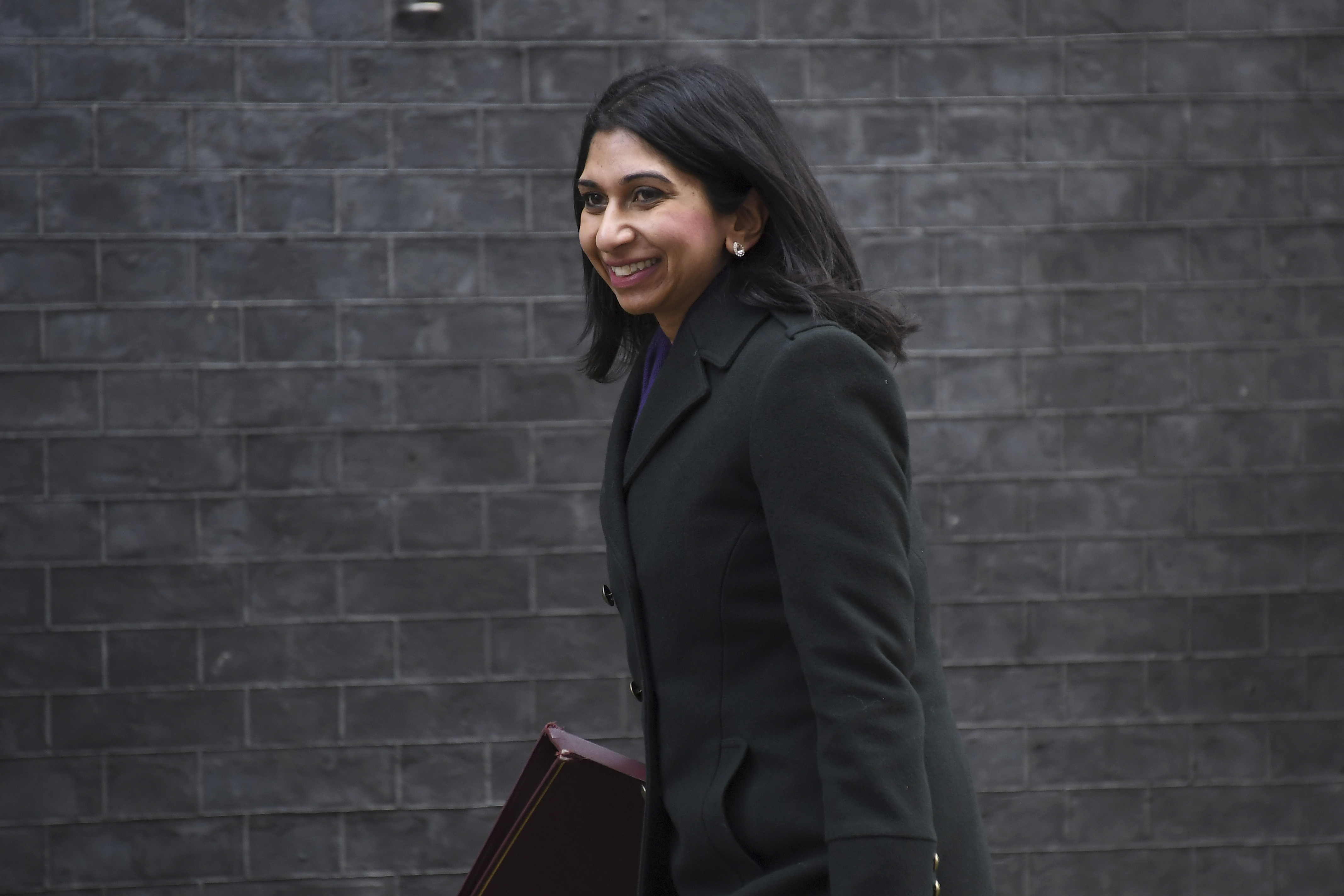Indian origin Suella Braverman was accused of being “unfit to serve as attorney-general” because she supports the view of the Prime Minister Boris Johnson that Britain’s judges have allegedly become too politicised and need to have their wings clipped.
The accusation came from Daisy Cooper, justice spokesperson for the Liberal Democrats, who said Bravermen’s appointment as the most senior law officer in the land is “the latest shocking step in Boris Johnson and (and his chief political adviser) Dominic Cummings’s assault on the rule of law”.
Braverman had previously served only as a parliamentary under-secretary of state, the most junior position in the ministerial hierarchy. A Guardian columnist insultingly referred to her as a “dimwit”. She has replaced the vastly more experienced Geoffrey Cox, who was the highest earning Queen’s Counsel in the Commons.
Originally known in the Commons as Suella Fernandes, she changed her name after her wedding in 2018, and her and husband Rael welcomed their first child, George, to the family last year.
There are those who are convinced that Boris is intent on curbing the power of the judges to involve themselves in political decisions taken by the government. The Supreme Court, for example, ruled unanimously that his decision to prorogue Parliament last year was illegal.
The Supreme Court also ruled in favour of Gina Miller, a Sikh origin businesswoman, who challenged the government on decisions it had taken on Brexit.
There is a view in sections of the Conservative Party — and Braverman shares them — that the jurisdiction of the judges need to be more clearly defined.
Others argue that vetting the appointment of judges, as happens in America, would undermine the independence of the Britain’s judiciary which is admired throughout the world, especially in India.
Braverman revealed where her sympathies lie in a comment piece on the Conservative Home website last month, when she declared Parliament must “retrace power ceded to the courts”.
She said: “Prorogation and the triggering of Article 50 were merely the latest examples of a chronic and steady encroachment by the judges.”
“For in reality, repatriated powers from the EU will mean precious little if our courts continue to act as political decision-maker, pronouncing on what the law ought to be and supplanting Parliament.
“Traditionally, Parliament made the law and judges applied it. But today, our courts exercise a form of political power.”
She said she was not “lambasting the judiciary” but arguing that the “delicate relationship between law and politics is off-balance,” adding: “I don’t challenge the quality of our judges, but I do question their trespass into inherently political terrain for which a legal answer is wholly insufficient.”
The article followed remarks she made in December on BBC TV’s Newsnight, where she said she hoped legal reforms would restore the principle of “judicial deference”, adding: “Which means that our courts and our judges generally stay out of politics.”
On Thursday Cox, the man Braverman has replaced, suggested MPs and peers could scrutinise the appointment of judges to the Supreme Court. Many others fear this would be a way of weeding out “activist” judges.
Boris has repeatedly suggested the role of judicial reviews should be looked at, and the Tory manifesto included a pledge to “constitution, democracy and rights commission”.
Braverman said: “One of my first priorities is to continue the government’s work in rebuilding confidence in our justice system, particularly with victims.”
The new cabinet met for the first time on Friday, with Rishi Sunak occupying the place of honour on the Prime Minister’s left, a position that had been occupied until Wednesday by Sajid Javid. His departure is still causing shockwaves.










